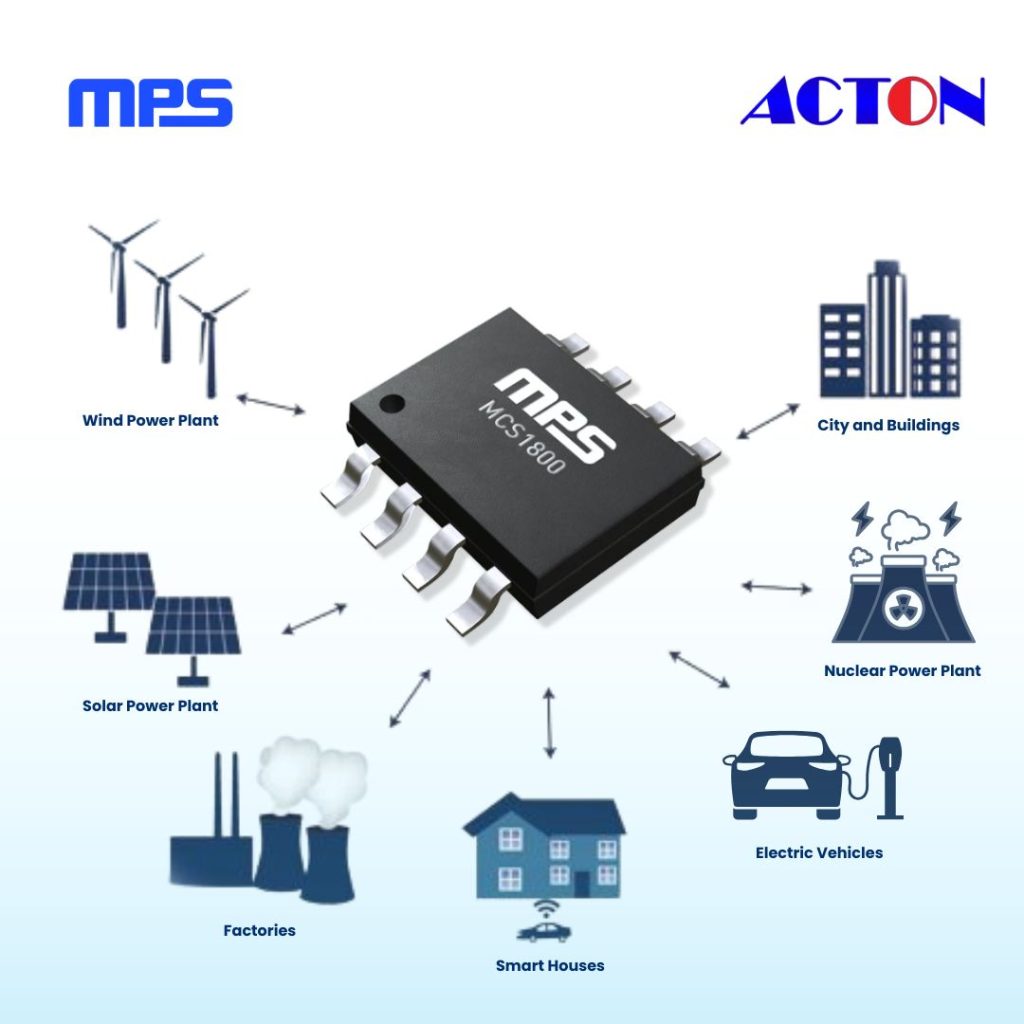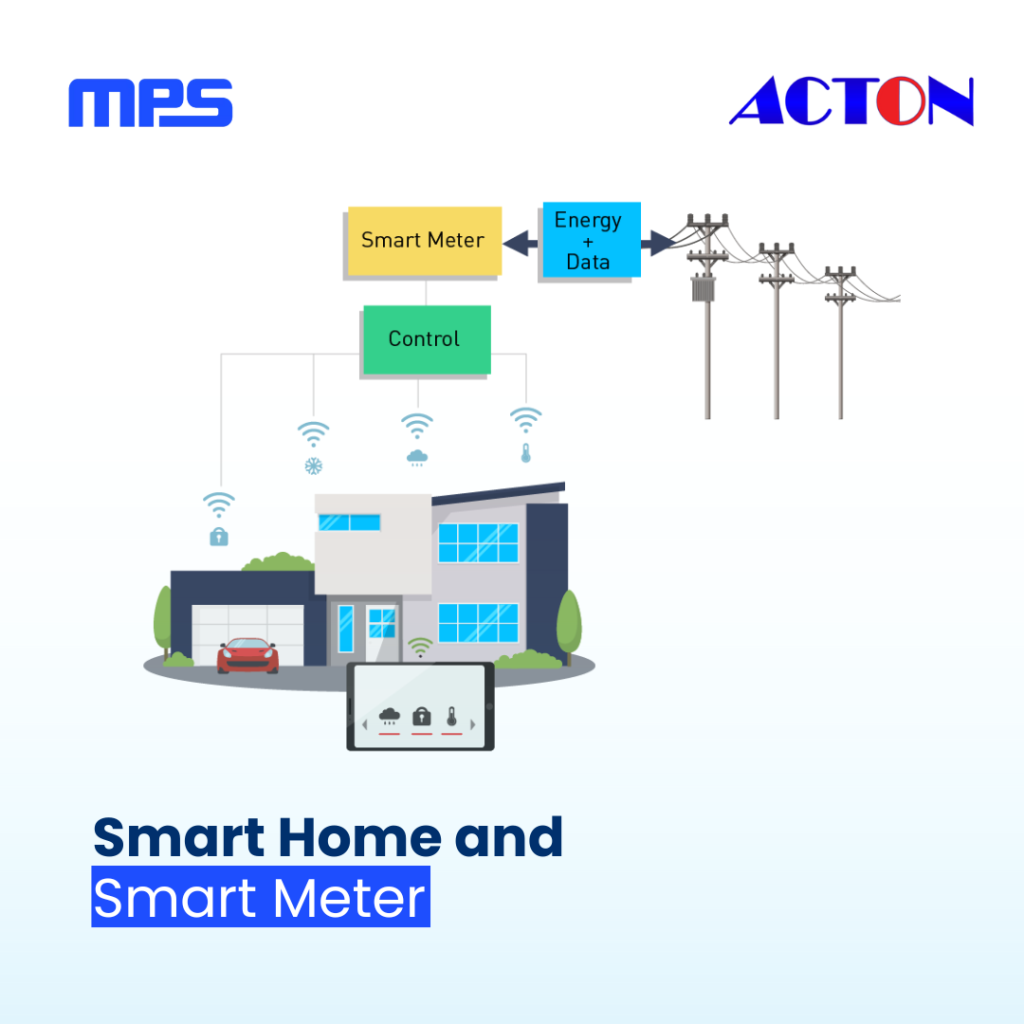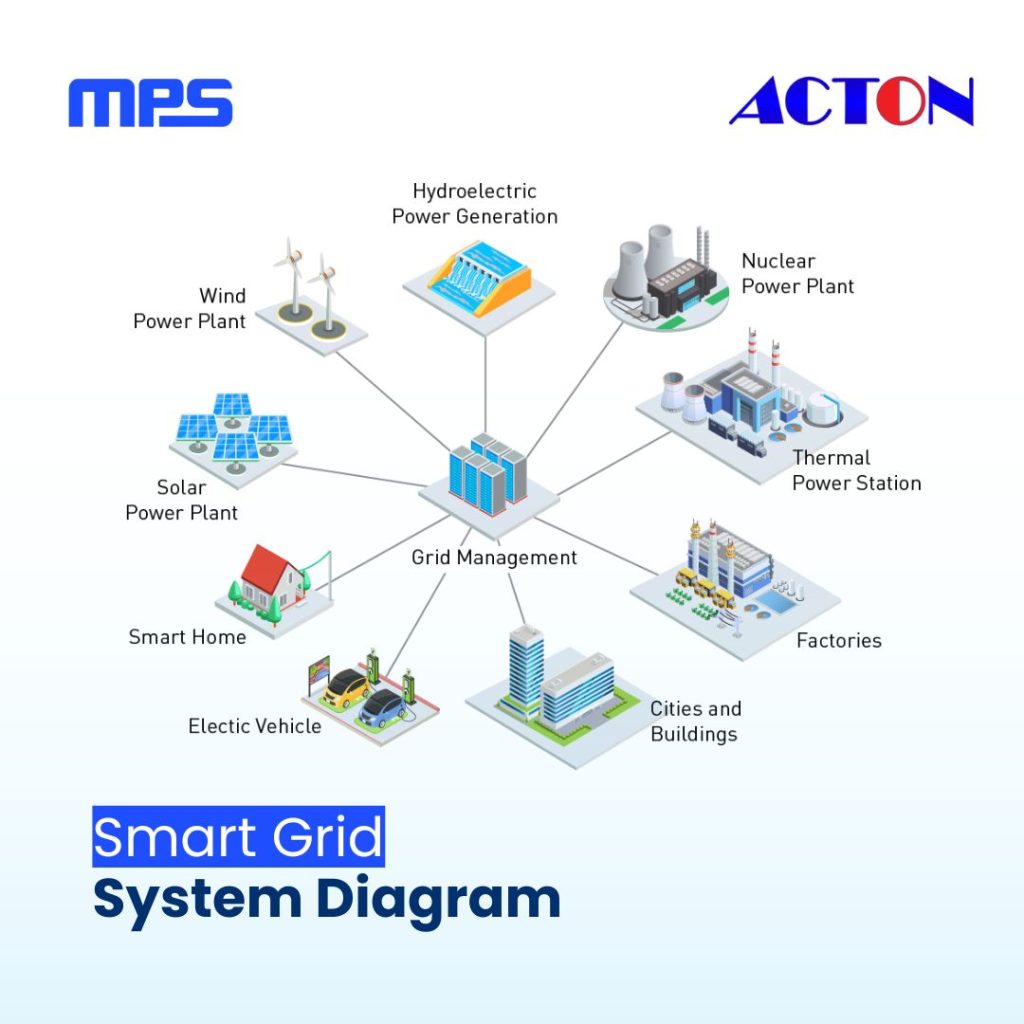Your Reliable Partner
Current Sensors for Reliable Smart Grid Systems
Small measurement errors can disrupt load balance, delay fault detection, and waste energy. Accurate, real-time current sensing ensures stable, efficient, and resilient smart grid operations.

TL;DR — Key Insights
- Why it matters: Even small errors can disrupt load balance, voltage regulation, and predictive maintenance.
- Current sensors provide: Real-time, accurate feedback for steady-state and transient grid conditions.
- Core benefits: Supports renewable integration, bidirectional power flow, fast fault isolation, and energy optimisation.
Current Sensor Challenges
- Inconsistent readings: Drift due to temperature, magnetic interference, or aging.
- Signal noise: Long cable runs or EMI can distort data.
- Slow response: Delayed fault detection increases risk.
Impact: Unreliable current data leads to reactive grid control, reduced energy efficiency, and compromised predictive maintenance.
How Current Sensor Issues Undermine Grid Reliability

In smart grid development, unreliable current sensors introduce silent inefficiencies that compound over time.
- Inaccurate readings distort monitoring and control decisions
- Delayed fault response increases system risk and maintenance costs
- Design constraints limit scalability and renewable integration
Why It Matters:
Precise current data lets grids operate efficiently, integrate renewables safely, and respond dynamically to load changes.
Why Current Sensors Matter in Smart Grid Systems
This is where current sensors redefine grid performance. Unlike basic current measurement tools, modern current sensors combine magnetic sensing, isolation, and signal conditioning into compact devices that deliver stable, accurate data in real time.
In a smart grid system, they enable engineers to:
- Monitorload and detect imbalances before they cause failures
- Isolate faults instantly to prevent equipment damage
- Support energy-efficient operation of inverters and converters
- Feed consistent data to control algorithms for predictive maintenance
By providing precise feedback, current sensors allow engineers to manage both steady-state and transient conditions with confidence. They make it possible to integrate renewables, balance distributed loads, and maintain reliability even in complex, interconnected grids.

From Measurement to System Intelligence
In smart grids, current sensors do more than measure—they enable real-time intelligence. By converting current data into digital signals, they give grid controllers the information needed to adapt dynamically to load changes. This helps maintain voltage stability, optimise generation, and improve grid resilience.
For distributed energy systems, current sensors make bidirectional power flow possible. They synchronise inverters, coordinate energy storage, and enable demand response, allowing the grid to respond to both consumption patterns and generation variability. This responsiveness transforms a static grid into an intelligent, adaptive system.
Design Considerations for Engineers
When developing a smart grid system, selecting the right current sensor directly influences system safety, efficiency, and scalability. Engineers typically evaluate several key factors:
Accuracy and Stability
Smart grids operate under wide temperature and magnetic ranges. Sensors must deliver consistent performance without drift or offset errors.
Response Time
Fast-acting sensors enable immediate fault detection and protection, reducing downtime and preventing damage.
Isolation and Safety
Built-in electrical isolation safeguards control electronics and meets safety requirements in high-voltage applications.
Size and Integration
Compact sensor designs simplify layout in dense converter modules or smart metering systems.
Energy Efficiency
Low-power sensors contribute to overall grid efficiency, especially when used in renewable and energy storage systems.
Making the right design choice early saves time in validation, simplifies certification, and ensures long-term system reliability.
Applying Current Sensors in Smart Grid Development
Current sensors support engineers across multiple applications:
Renewable Integration
Sensors improve maximum power point tracking (MPPT), ensuring solar and wind sources deliver optimal energy output.
Energy Storage Systems
Accurate current data manages charge and discharge cycles to protect battery health.
Grid Protection
Fast response enables circuit isolation and fault containment within milliseconds.
Demand Response
Real-time current monitoring supports data-driven load management and energy optimisation.
For each of these applications, stable current sensing ensures smooth operation and supports the larger goal of sustainable, intelligent energy management.
Why Choose Acton as Your Current Sensor Distributor
Acton Technology is the authorized distributor of Monolithic Power Systems (MPS) in Southeast Asia, with offices in Singapore, the Philippines, Thailand, and Vietnam. We supply reliable current sensors, current transformers, and power management solutions for smart grid, renewable energy, and industrial applications.
We help engineers and sourcing teams design stable, efficient, and safe power systems. Acton provides dependable components, responsive local support, and technical expertise to keep projects on schedule and performing reliably.
For sourcing or technical support, contact us at contact@acton-tech.com.
Find our offices in Malaysia, Philippines, and Singapore
We Provide Solutions.
Discover our Power Management Solutions